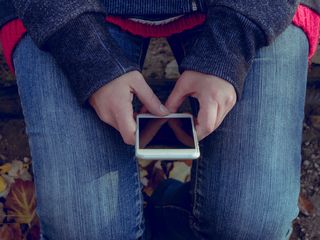Bias
Is The Internet Making Us Racist?
New research reveals a surprising consequence of life online
Posted December 15, 2015

There’s a troubling paradox in the age of information. We’re more connected than ever, but in some ways we’re becoming more divided as people. Early thought leaders of the Internet envisioned a democratizing network empowering all individuals with equal access. And in many ways the enlightened promise of the Internet has been delivered in spades. But there’s an insidious side to life online creating the opposite effect of a more inclusive society. And it’s stirring up rifts between all kinds of groups based upon differences like religion, politics, ethnicity and skin color.
There is now quantitative behavioral evidence that increased access to the Internet increases racially motivated hate crimes. A remarkable new study recently published by Jason Chan from the University of Minnesota, and Anindya Ghose and Robert Seamans of New York University, is the first to use a large-scale dataset to quantify the impact of Internet access on hate crime. Study authors conclude that in the U.S. from 2001-2008, “We find evidence that, on average, broadband availability increases racial hate crimes.” The addition of a single broadband provider led to as much as a 20 percent rise in racial hate crimes. These results were primarily driven by individuals, i.e., “lone wolf” perpetrators, and were more likely to occur in areas where racial tensions were higher.
So why is the online world reinforcing racial hate crime in the real world? Professor Chan explains, “The likely reason behind this is the Internet facilitates this specialization of interest. That is to say users will search out content online that is congruent to their beliefs or preferences and are not as likely to look up content that is counter to what they believe in.”
While this study focused on extreme instances of racism and the vast majority of people would never commit hate crimes, it does beg the bigger question: Is the Internet making society, in general, more or less tolerant of diversity? Few will argue much progress has been made in the past several decades. And there is data to suggest that millennials as a group are more racially progressive than the previous generation and are more likely to support immigration and interracial marriage. But at the same time, if you look at escalating tensions regarding race relations stemming from police enforcement issues, growing concerns over Syrian refugees and Mexican immigrants, Islamophobia and global and local terrorism, etc. – in many ways xenophobia seems to be on the rise in the U.S., if not globally.
And there’s a good reason and it is biological not just cultural. There’s an app hardwired into the human brain that predisposes us toward in-group favoritism and groupthink, one that nonconsciously nudges us to surround ourselves with people who act just like us. Like brand new automobiles, humans come with a built-in set of stock features that are standard from the factory, traits and characteristics with which we are all born. All humans have what evolutionary psychologists call evolved psychological mechanisms—inborn behavioral capacities that drive automatic, unconscious decisions. These cognitive mechanisms, include territoriality, coalition formation, collective decision making, and predator avoidance, and play primary roles in a vast array of our enduring behaviors. These evolved psychological mechanisms often generate immediate behavioral responses that occur without thinking, based upon a narrow slice of information. Think, for instance, the knee-jerk spread of divisive content about politicians and candidates without fact checking.
This vestige of our hunter-gatherer forbears facilitated greater cooperation and forged empathic social bonds with our tribal affiliates for millions of years. But today it can back fire online, as the rejection of tribe members is made powerfully simple through the click of button. The reality is that surrounding ourselves only with people who are just like us is one of the best ways to inhibit learning, progress, and tolerance for cultural diversity.
The good news is that nature is not destiny. Much as racism is a socially learned construct, people can unlearn prejudice and bigotry. Problem is, so much of the Internet today is based upon affinity. And the means by which we often sort and seek content and connection is based on similarity, familiarity and liking.
To combat these forces we need to take back conscious control and encourage connection and discovery with people and points of view that are dissimilar to ours. After all, it was a melting pot of cultures that made America great in the first place. And divergent thought and cultural exchange of information has always been the engines of progress since the dawn of humankind. So the next time you send an invitation on Linkedin, follow someone on Twitter or unfriend another on Facebook for having the nerve to disagree with you, maybe we all should cast the web a bit farther and wider and learn a new point of view. Think humans before blacks, whites, Democrats, Republicans, Christians or Muslims, etc. We really are all connected, quite literally through the Internet.
Everyone single one of us shares a universal biology as humans, in part because we all share common ancestry. As the anthropologist Curtis Marean indicates, “The genetic record shows us that we are all descended from a small population of approximately 600 breeding individuals.” While there may be disagreement about when and how many, it does seem that everyone on earth today is descended from a small original population in Africa. It may sound trite, but it’s true: We are all one. The more you go back in time, the closer the relationship gets.
There really is only one race: the human race.
www.unconsciousbranding.com(link is external)(link is external)
https://twitter.com/DouglasVanPraet(link is external)(link is external)




